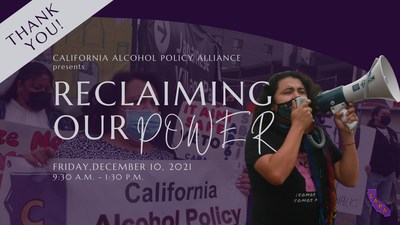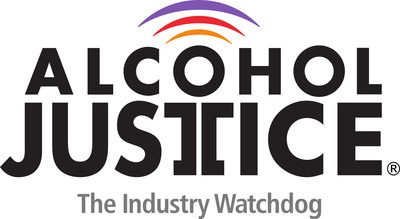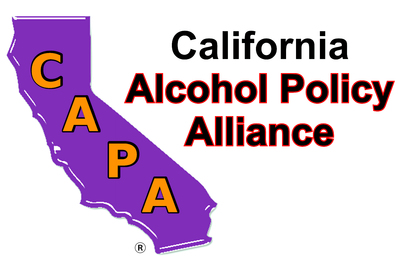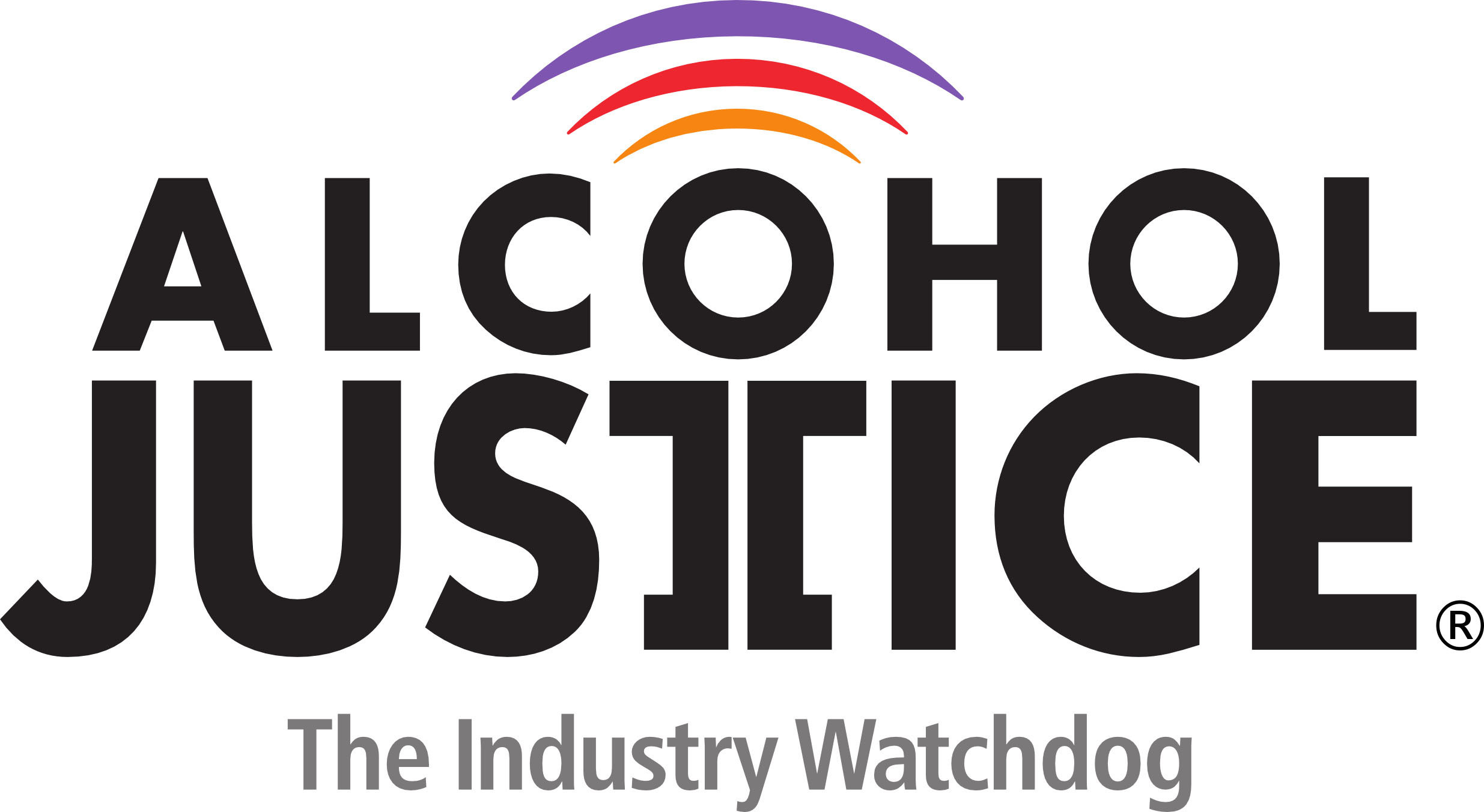SAN FRANCISCO, Dec. 14, 2021 /PRNewswire-HISPANIC PR WIRE/ — California Alcohol Policy Alliance (CAPA), and Alcohol Justice, held the 6th Annual #CAPASummit last Friday. The four-hour, virtual, bilingual, event drew 90 public health and safety advocates from over 50 different California nonprofit organizations and public agencies including Eric Hirata, Director of the California Department of Alcoholic Beverage Control (ABC).

“Thank you for the opportunity to attend the 6th Annual CAPA Summit. It was a great event and the speakers were very informative and engaging. We enjoyed the energy and spirit throughout the event, and look forward to next year’s summit.” – Eric Hirata
As in year’s past, the summit combined the acknowledgement and celebration of CAPA’s successes with a recommitment to face the new year’s challenges with concerted advocacy efforts driven by facilitated dialogues that strengthen the alliance’s collective power. The theme for this year’s event was Reclaiming Our Power.
“This year’s summit was an invitation to continue our important work together in the direction of reclaiming collective power to make meaningful systemic change,” stated Mayra Jiménez, Advocacy Manager at Alcohol Justice. “With this event, CAPA is launching a series of conversations that will continue throughout 2022 to move us along in our journey. Next year we will be hosting panels, discussions, and presentations to further our critical analysis and our capacity for powerful partnerships that lead to effective advocacy.”
The event kicked-off with a spirited keynote address delivered by Eunisses Hernandez, Co-founder & Executive Director of La Defensa in Los Angeles. Eunisses is a policy advocate and campaign strategist working with local and state legislators, system actors, and communities most devastated by criminalization, the war on drugs, and mass incarceration. As a native of Los Angeles, the daughter of immigrants, and loved one of people with mental health needs and substance use disorders, Eunisses knows the detrimental impacts that criminalization has on immigrants and communities of color.
“The work that CAPA is doing to reimagine and reclaim their power to make systemic change will transform how we address alcohol related harm in California,” said Eunisses Hernandez. “The current responses to this harm have not met the needs of our communities across the state. For decades, myself like many other people have seen the harms caused by the criminalization of alcohol use and the lack of access to supportive services for problematic alcohol use. It’s time that we all come together to develop the solutions and the budgets that are going to prevent alcohol related harms. I applaud the work and endeavor of CAPA.”
An enlightening and empowering panel discussion moderated by Alcohol Justice’s Advocacy Director Jorge Castillo followed presentations by:
- Nicholas Freudenberg, Ph.D., Distinguished Professor of Public Health at City University of New York School of Public Health and Director of the CUNY Urban Food Policy Institute, who this year published a book titled “At What Cost: Modern Capitalism and the Future of Health,”
- Jill Sharkey, Ph.D., Associate Dean for Research and Outreach in the Department of Education, University of California Santa Barbara, and
- Natalie Larez, Ph.D. student in the Department of Counseling, Clinical, and School Psychology, University of California Santa Barbara.
“Modern corporations are transnational and global and Big Alcohol corporations in particular have no allegiance to any government with their primary purpose being to increase annual profits,” stated Castillo. “They have the power to change local laws, state laws, and even state constitutions while benefiting by engaging in unethical practices and weakening regulatory agencies. The tragic results over the past 14 years in California are an estimated 140,000 alcohol-related fatalities, and over 1.4 million alcohol-related injuries. What has led us to accept the loss of life and injuries to guarantee profits for an industry producing and marketing such dangerous products in our society, and how do we reclaim the power to reverse this?”
“In Public Health there is a lot of talk about social determinants of health – the broad circumstances influencing patterns of health and disease,” said Nicholas Freudenberg, Ph.D. How we do that? First, we need to look at upstream drivers of ill health – by looking at business practices, market practices, ways they increase market shares, increase profits, and their political practices: campaign contributions, lobbying, public relations strategies, that’s how they (corporations) take control and we need to be smarter in thinking of how we can change those practices in order to create a more favorable environment for us to achieve public health victories. Second, we need to talk about Capitalism – the name of the economic and political system here in the United States and many parts of the world. It doesn’t mean we need to agree. But we do need to talk about the social and economic system and the forces that are creating patterns of health and disease. And we need to do it together and learn about it and debate it and understand what part of Capitalism can we change now, next year, and in 5 years to create better health. And those changes need to be grounded in public health practice, what some researchers call practice-based evidence — what is going on, on the ground, who is achieving victories, how did they do it, what can we learn from that and how can we modify that for the communities we work in.”
“In trying to make systems changes in probation, school and mental health systems — having researchers provide reports and executive summaries, doesn’t always inspire administration to make a difference,” stated Jill Sharkey, Ph.D. “But when we raise the voices of community members, they can’t say that the data is wrong, they appreciate the testimonials and the feedback.”
“We are perpetuating a certain narrative of placing the blame on individuals by focusing prevention efforts on education only, rather than systemic change,” said Natalie Larez, Ph.D. candidate. “When we think of prevention – it places the onus on certain agencies, and certain people or groups of people, when the onus and the responsibility of changing the way alcohol is infiltrating certain systems and how our policies exist is the responsibility of bigger systemic institutions. And at the same time, there are ways to do work at both ends. That’s the most effective way — prevention and also larger institutions putting in equal effort if not more effort to target the same problem. We can do work at both ends.”
The event concluded with awards to five key individuals in acknowledgement of their special contributions to alcohol- harm prevention and the CAPA mission. The awards were in the form of CAPA Wakinyan ‘Thunder’ necklaces as a token of gratitude, respect and love. The Wakinyan ‘Thunder’ necklaces were designed and hand carved specifically for each person being honored by Alcohol Justice ally, Oglala Lakota artist Robert Swimmer. The honorees were:
- Veronica DeLara – For her leadership as CAPA Co-Chair. Her willingness and courage to take on new challenges as chair helped CAPA grow politically. Veronica helped guide successful battles against the 4 a.m. bar bills. She acted selflessly and gave it her all. Veronica’s love for the people is undeniable.
- Gilbert Mora – For his leadership as a former CAPA Co-Chair. Under his guidance, CAPA achieved great success, saving countless lives by stopping several bills to extend alcohol sales to 4 a.m. at bars and restaurants. His sense of humor and patience helped CAPA navigate difficult challenges. His selfless service to the people of California is undeniable.
- Johnny Whitaker – For his leadership and dedication to servicing those afflicted by alcohol and drug addiction. John served as a founding member of the Los Angeles Drug & Alcohol Policy Alliance, as a founding member of the California Alcohol Policy Alliance, and as a board member of Alcohol Justice. His ability to mobilize people afflicted by addiction helped bring about early successes including the City of Los Angeles ordinance which bans alcohol ads on city owned and controlled public property. John is a true servant of the people.
- Xavier Flores – For his lifelong commitment to the people of California. As a ‘veterano’ of the alcohol prevention struggle, Xavier brought wisdom and experience to CAPA conversations. During meetings he does not let us forget the power and responsibility we must hold and must care for as we make organizing decisions. Xavier challenges us to make us better. We know that he acts out of love for our ‘gente’, for the people in California. His mentorship helped direct us into social justice, into starting a movement, and into reclaiming our power.
- Bruce Lee Livingston – For his leadership and vision as former Executive Director / CEO of Alcohol Justice. Bruce built with us the California Alcohol Policy Alliance and the Los Angeles Drug & Alcohol Policy Alliance. He helped make CAPA a force to be reckoned with. He brought activism back into alcohol policy. We thank Bruce for helping us rise up as one.
CAPA Mission:The California Alcohol Policy Alliance (CAPA) shall unite diverse organizations and communities in California to protect health and safety, and prevent alcohol-related harm through statewide action.
CAPA Platform: Current core issues leading to specific advocacy and policy change action items.
- Raise the price of alcohol through taxes and fees, supporting the “Charge for Harm” concept that the industry should pay for treatment, prevention and all other costs to government.
- Limit alcohol advertising in all media, especially on government-controlled property and where children or targeted populations are exposed.
- Make the California Department of Alcoholic Beverage Control effective, efficient, transparent, and accountable to public health and safety concerns of the community, and not to cater to industry profits and license expediency, through policies that reduce alcohol outlet density and increase funding for alcohol control, regulation, and enforcement.
- Eliminate product lines (such as alcopops and malt liquors) oriented to underage youth and vulnerable or targeted populations.
- Reduce the allowable blood alcohol content for drivers as “Point .05 Saves Lives”
- Improve labelling and out-of-home advertising of all alcohol products to ensure a) no marketing to youth, b) no indications of unsubstantiated health claims, c) display of alcohol content by volume and percentage and d) display of harms.
- Support racial, ethnic, socioeconomic and health justice in all advocacy; seek cultural competency and diversity in our engagement of volunteers, membership, and collaborating organizations; reduce disparities of alcohol harms, eliminate bias in enforcement of alcohol laws, and end inequities in access to alcohol dependence treatment, recovery and care services.
CAPA Member Organizations:
- Alcohol Justice
- Alcohol-Narcotics Education Foundation of California
- ADAPP, Inc.
- ADAPT San Ramon Valley
- Bay Area Community Resources
- Behavioral Health Services, Inc.
- Best Start Region 1
- CA Council on Alcohol Problems
- Cambodian American Association of America
- CASA for Safe & Healthy Neighborhoods
- Center for Human Development
- Center for Open Recovery
- DogPAC of San Francisco
- Dolores Huerta Foundation
- Eden Youth & Family Center
- Institute for Public Strategies
- FASD Network of Southern CA
- FreeMUNI – SF
- Friday Night Live Partnership
- Future Leaders of America
- Koreatown Youth & Community Center
- Laytonville Healthy Start
- L.A. County Friday Night Live
- L.A. Drug & Alcohol Policy Alliance
- L.A. County Office of Education
- Lutheran Office of Public Policy – CA
- MFI Recovery Center
- Mountain Communities Family Resource Center
- National Asian Pacific American Families Against Substance Abuse
- National Council on Alcoholism & Drug Dependence – Orange County
- Partnership for a Positive Pomona
- Paso por Paso, Inc.
- Project SAFER
- Pueblo y Salud
- Reach Out
- San Marcos Prevention Coalition
- San Rafael Alcohol & Drug Coalition
- SAY San Diego
- Saving Lives Drug & Alcohol Coalition
- South Orange County Coalition
- Tarzana Treatment Centers, Inc.
- The Wall Las Memorias Project
- UCEPP Social Model Recovery Systems
- Women Against Gun Violence
- Youth For Justice
“This year we continue the good fight to RECLAIM OUR POWER in advocacy, policy and in our communities. That is the path that we commit to by being here today,” stated Stephen Updyke, Health Educator/Outreach Worker at Tarzana Treatment Centers. “Let us continue to work tirelessly to find solutions based on grass roots–community informed process–solutions that are best for the public’s health. Let us bridge the ‘halls of power’ both locally and regionally, and demand that they listen to the people.”
“The fight for social justice is central to our work at Alcohol Justice and CAPA to reduce alcohol-related harms in our communities,” stated Cruz Avila, Executive Director at Alcohol Justice. “We thrive and succeed in those collective efforts when we come together to identify powerful intersectional partnerships in public health and safety that inform social justice in progressive alcohol control policy.”
The 6th Annual CAPA Summit was recorded and can be seen in its entirety here:
English: https://vimeo.com/655546145
Password (case sensitive): PowerEsPoder
Spanish: https://vimeo.com/655565089
Password (case sensitive): PowerEsPoder
Please enjoy the #CAPASummit2021 music playlist here: https://spoti.fi/3pPooGx
For more information go to: https://alcoholpolicyalliance.org/
- On Twitter @CAPA_Alcohol
- On Instagram @caalcoholpolicy
- On Facebook @AlcoholPolicyAlliance
California Alcohol Policy Alliance is a project of Alcohol Justice
CONTACT: Michael Scippa 415 548-0492
Jorge Castillo 213 840-3336
Mayra Jiménez 323 683-4687


Photo – https://mma.prnewswire.com/media/1709436/reclaimingpower.jpg
Logo – https://mma.prnewswire.com/media/147418/alcohol_justice_logo.jpg
Logo – https://mma.prnewswire.com/media/469269/California_Alcohol_Policy_Alliance_Logo.jpg
SOURCE Alcohol Justice; California Alcohol Policy Alliance







